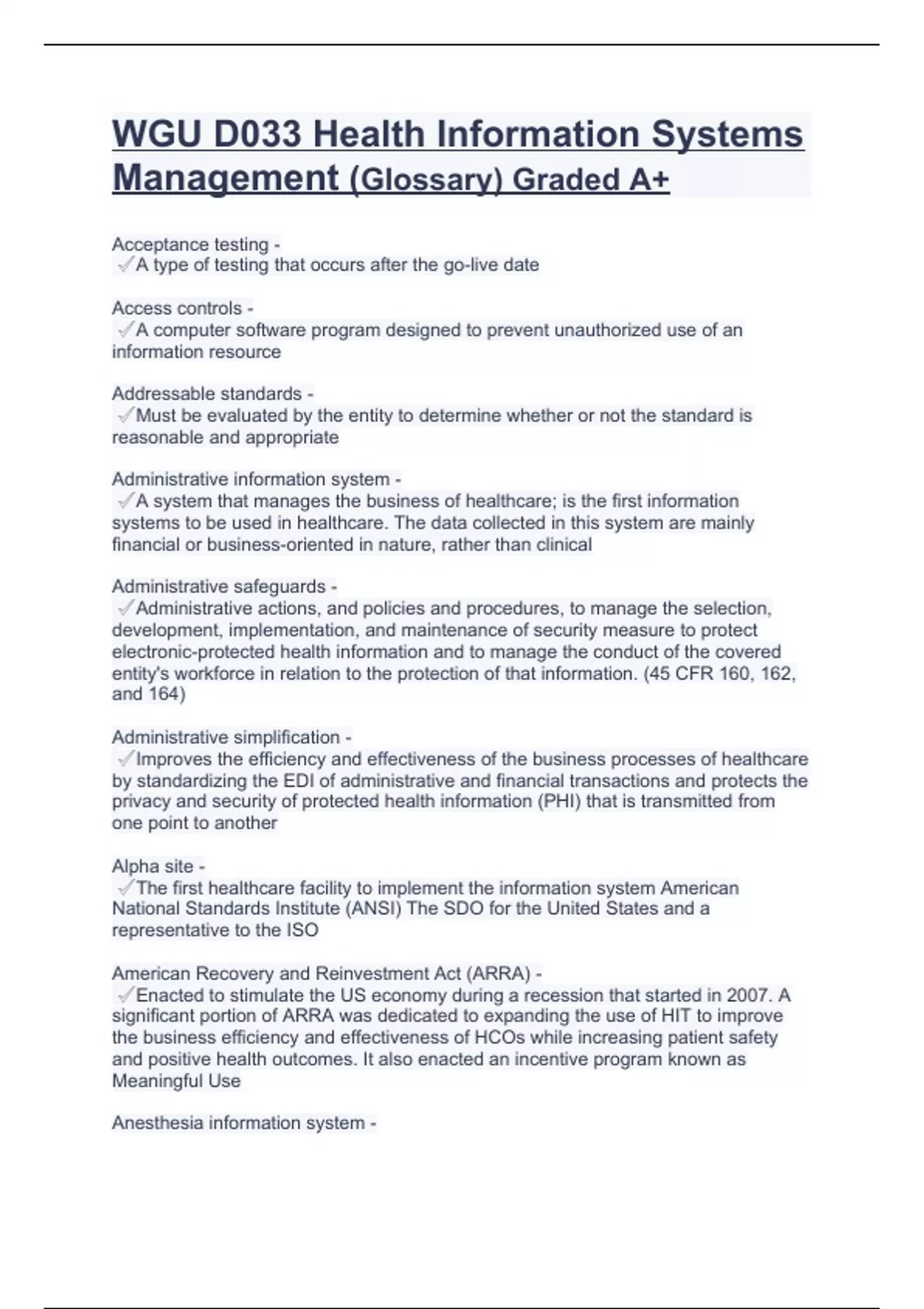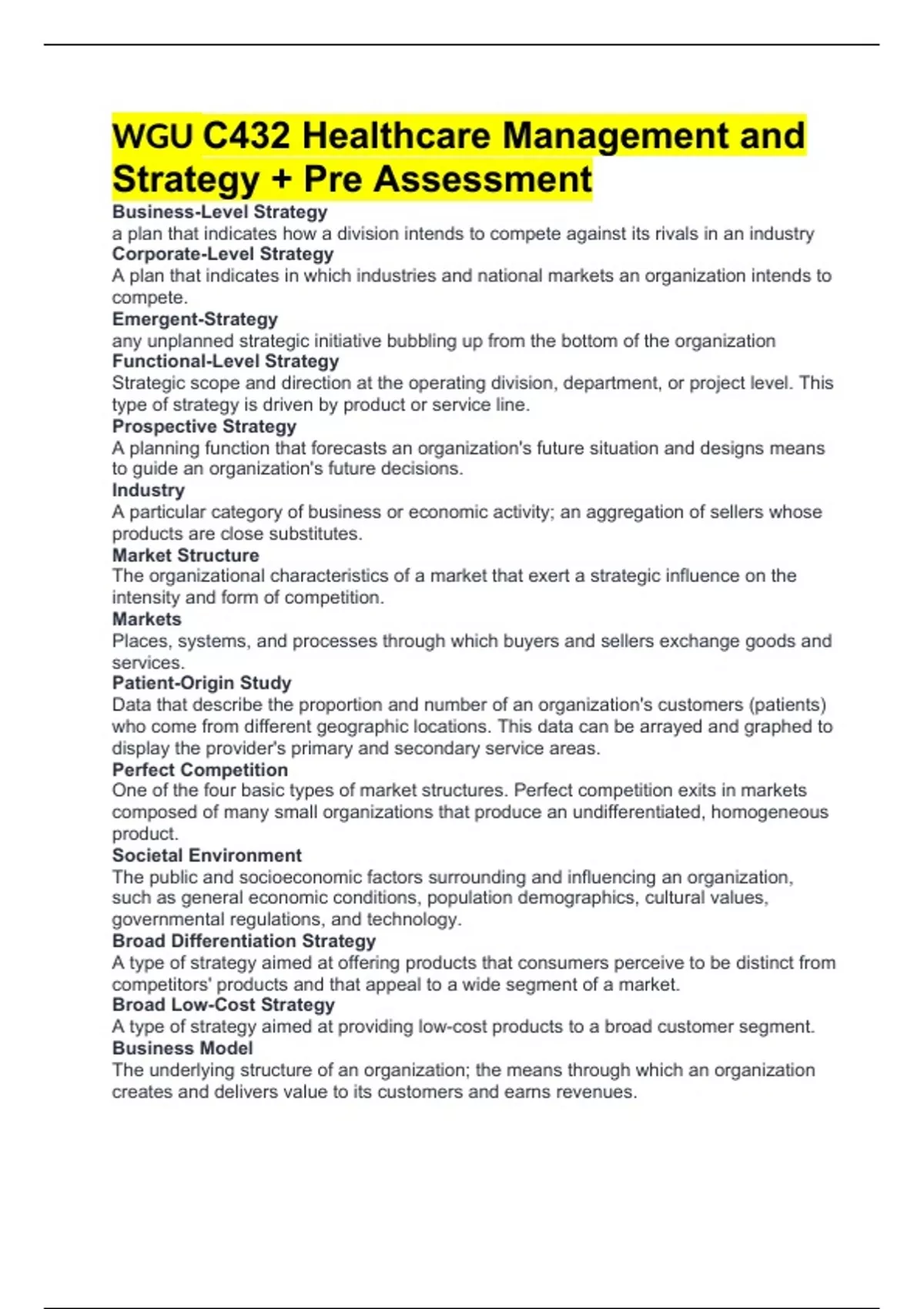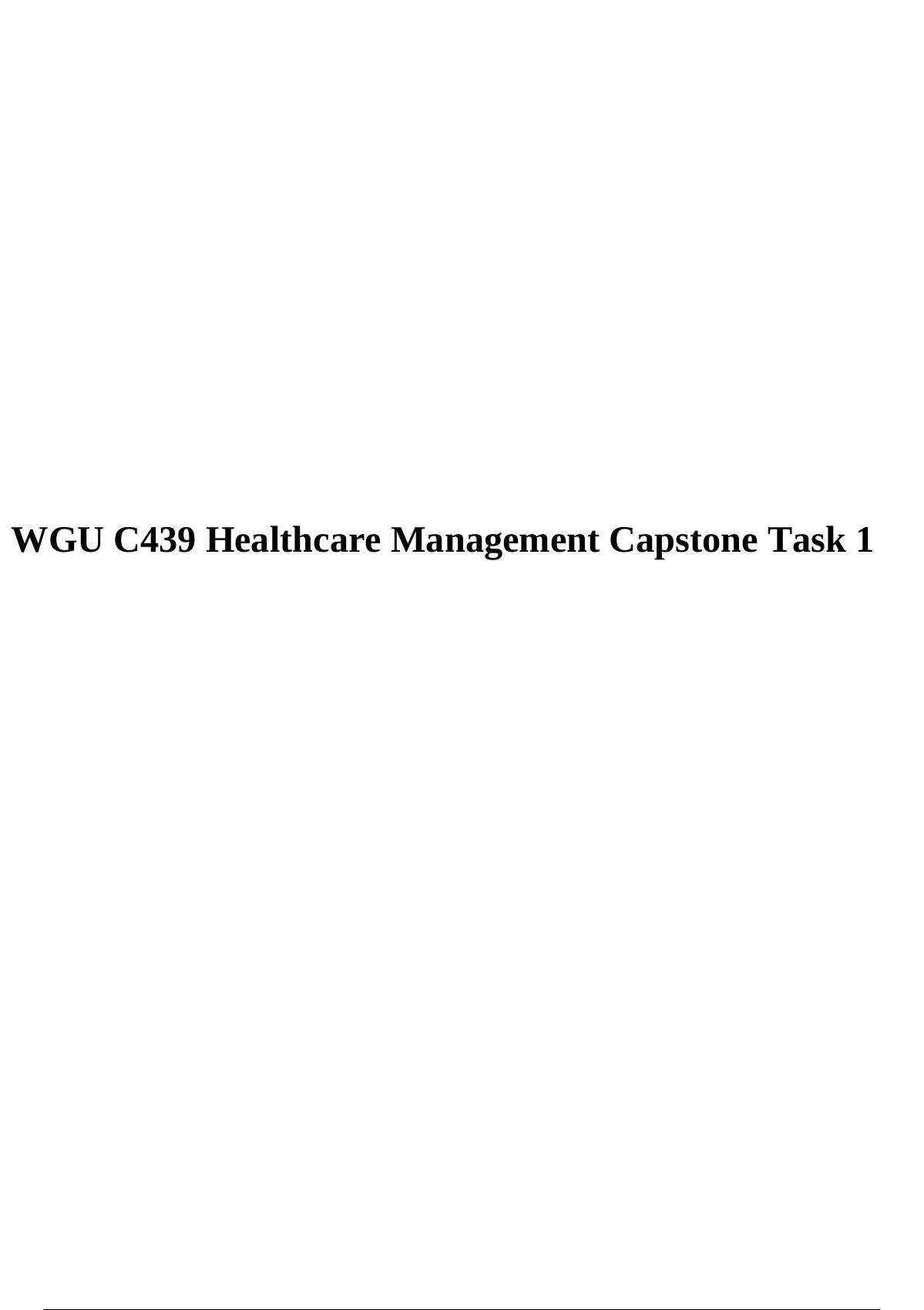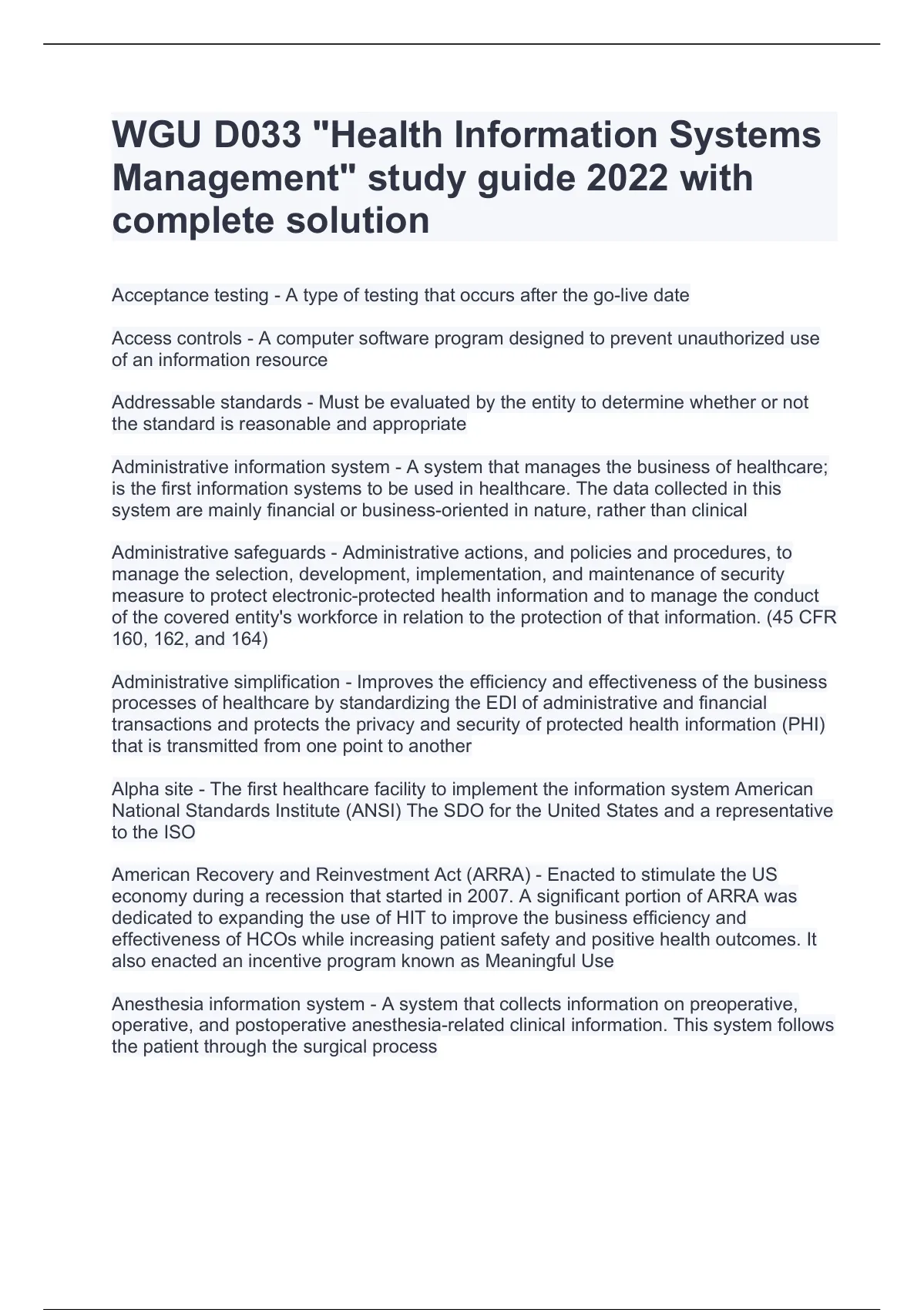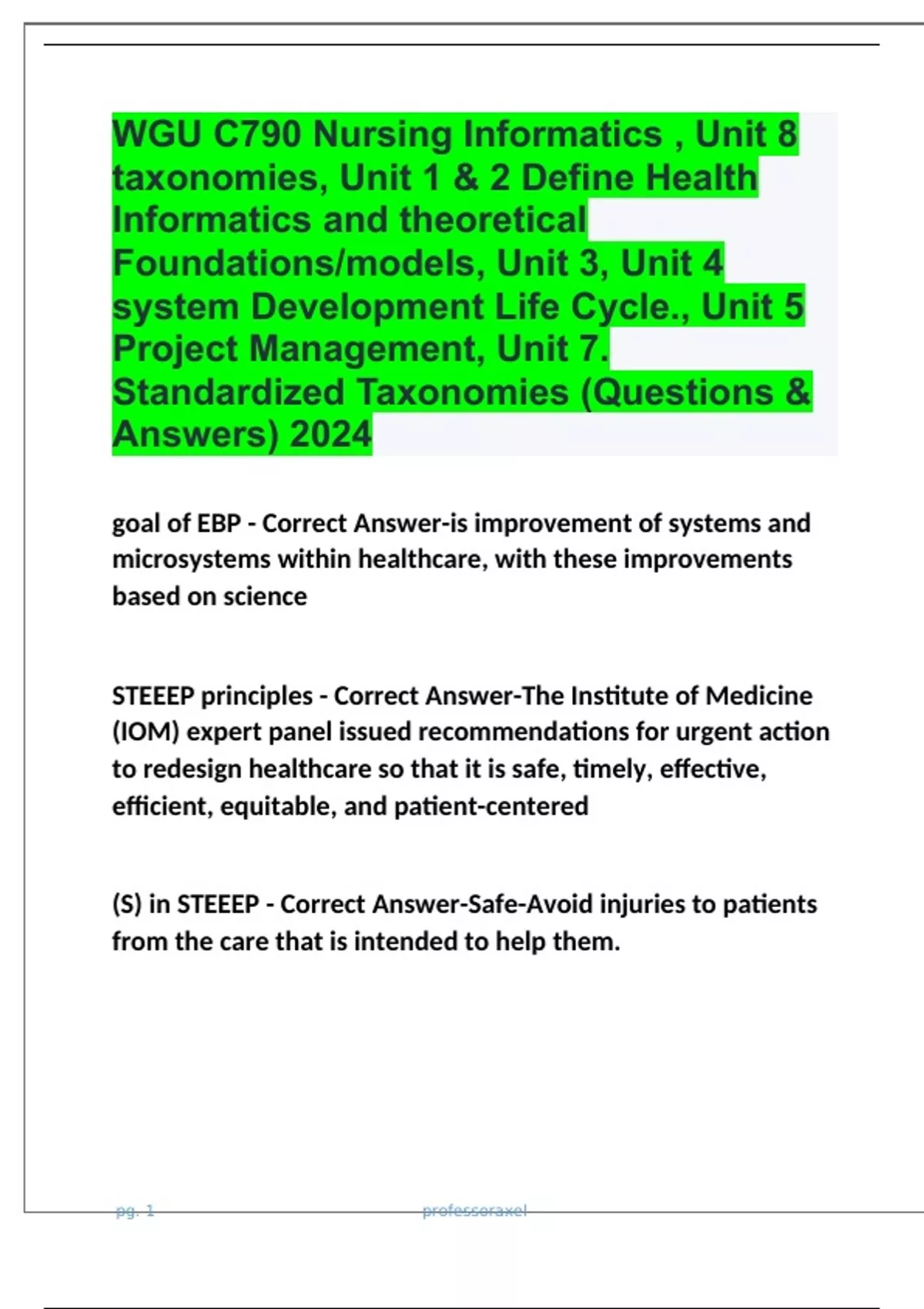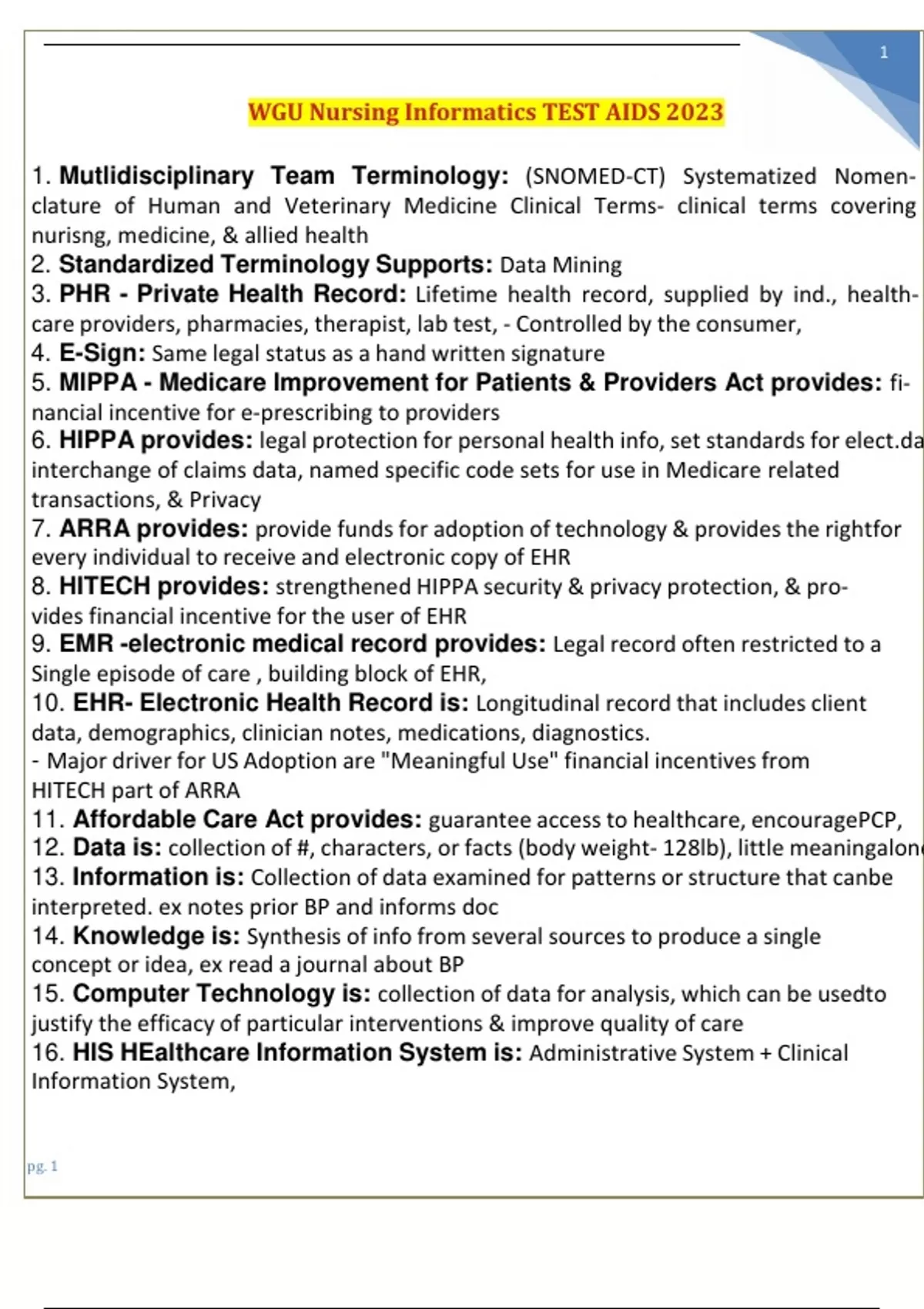Wgu Health Information Management Reviews

Western Governors University's (WGU) Health Information Management (HIM) program is garnering increasing attention, prompting prospective students and industry professionals to meticulously evaluate its strengths and weaknesses. WGU, known for its competency-based education model, offers an alternative pathway to a career in the rapidly evolving field of health information.
This article aims to provide a balanced overview of WGU's HIM program, drawing on available data, student testimonials, and industry insights to inform those considering this educational option.
Program Structure and Accreditation
WGU's HIM program is offered at both the bachelor's and master's levels. The Bachelor of Science in Health Information Management program is designed to equip students with the knowledge and skills necessary to manage, analyze, and secure patient data.
A key aspect of WGU's HIM programs is their accreditation. The Commission on Accreditation for Health Informatics and Information Management Education (CAHIIM) accredits WGU's Bachelor of Science in Health Information Management program.
CAHIIM accreditation signifies that the program meets rigorous standards for curriculum, faculty, and resources, ensuring graduates are well-prepared for professional roles. Accreditation is crucial, as it often qualifies graduates for professional certifications and enhances their career prospects.
Competency-Based Learning
WGU's defining characteristic is its competency-based education model. Instead of traditional credit hours, students progress through the program by demonstrating mastery of specific competencies.
This allows students with prior knowledge or experience to accelerate their progress, potentially completing the program faster and at a lower cost. Conversely, students who need more time to grasp a concept can focus on specific areas without being held back by a fixed schedule.
The competency-based approach can be a significant advantage for self-motivated learners who thrive in a flexible environment. However, it requires discipline and strong time management skills.
Student Reviews and Outcomes
Student reviews of WGU's HIM program are mixed, reflecting the diverse experiences and learning styles of its students. Some students praise the program's flexibility, affordability, and relevance to industry standards.
They appreciate the ability to learn at their own pace and the support provided by WGU's faculty and mentors. "The competency-based model allowed me to balance my work and family responsibilities while pursuing my degree," noted one WGU graduate on a professional networking site.
Other students express concerns about the level of interaction with instructors and the potential for feeling isolated in a self-directed learning environment. Some also report challenges in finding internships or securing employment after graduation, highlighting the importance of proactive networking and career planning.
Career Opportunities and Industry Relevance
Graduates of HIM programs can pursue various career paths in healthcare organizations, insurance companies, government agencies, and consulting firms. Roles may include health information manager, data analyst, compliance officer, and privacy officer.
The demand for skilled HIM professionals is projected to grow in the coming years, driven by the increasing adoption of electronic health records and the growing emphasis on data security and privacy. The Bureau of Labor Statistics projects significant growth in the healthcare occupations, including those related to health information.
WGU's HIM program aims to prepare students for these roles by providing them with a solid foundation in health informatics, data management, and regulatory compliance. However, success in the job market depends on factors beyond the degree, such as professional certifications (e.g., RHIA or RHIT), networking, and practical experience.
Cost and Financial Aid
WGU's tuition model is based on six-month terms, allowing students to take as many courses as they can complete within that timeframe. This can be a cost-effective option for motivated learners who can accelerate their progress.
WGU also offers various financial aid options, including federal student loans, grants, and scholarships. Prospective students should carefully research these options and develop a budget to ensure they can afford the program.
Compared to traditional brick-and-mortar institutions, WGU's tuition is generally lower, making it an attractive option for students seeking an affordable education. However, students should factor in the cost of textbooks, technology, and professional certifications when calculating the total cost of the program.
Conclusion
WGU's Health Information Management program offers a flexible and potentially affordable pathway to a career in the health information field. Its competency-based model, CAHIIM accreditation, and focus on industry-relevant skills are key strengths.
However, prospective students should carefully consider their learning style, time management skills, and career goals before enrolling. Proactive engagement with faculty, networking with industry professionals, and pursuit of relevant certifications are crucial for maximizing the value of the program and achieving career success.
Ultimately, the decision of whether or not to pursue WGU's HIM program is a personal one that should be based on a thorough assessment of individual needs, circumstances, and aspirations.







